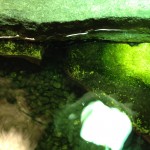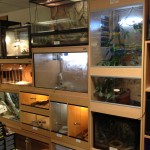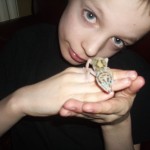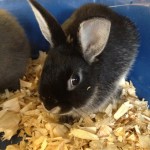Occasionally we get customers come into the shop for advice on a wide variety of animal care issues that can all be linked to the same consideration. Where, in your home, should an animal be housed. I am not talking about what type of cage (although obviously that is important) but whereabouts that enclosure is sited.
Problems caused by “incorrectly” locating an enclosure can range from algal growth in a fish tank to death in birds. Often unexplained deaths or illnesses can be attributed to where the enclosure (tank, cage, vivarium etc.) has been sited. I’ll run through a few of the issues with a selection of different animals and, where I can, illustrate with a real example. This will not be an exhaustive list, I would be here forever but is just to get you thinking about where you are going to house the enclosure before you buy an animal, or to think if there is any improvement to be made with your existing set up.
- First of all, probably the most obvious to most people, is not to put enclosures directly in front of a window. This is true for dog cages, vivaria (especially glass), fish tanks, bird cages (although there is a caveat to that one), spider tanks etc. The main reason (and the reason why it is not allowable to have animals in a pet shop windows) is, when you are out and the windows are closed you cannot control the temperature. It can very quickly get very hot in a window. Extreme changes in temperatures are not tolerated well by many animals, most find it distressing at best and it can be fatal. We all know of the well publicised campaigns on not leaving dogs in cars. Why then would you leave any animal in a front window on a hot day with the windows shut?
- The caveat about birds is that many benefit from UV light exposure. UV does not penetrate most glass so there is no benefit in putting a cage in front of a closed window but it can be argued that a brief spell in front of an open sunny window can have benefits. You have to take into account any wind (blowing the cage over and releasing the bird!), outside activities (i.e roadworks, cats, etc) but I would not discount doing this. Often an avian UV lamp is a more controllable option though. Obviously a well constructed aviary in the right location solves all your problems.
- Fish tanks suffer from the additional problem that direct sunlight can lead to excessive algal growth. If your tank suffers from this think about the amount of light it receives, either from a window or from how long you have the lights on for. Algae are plants and need light to photosynthesise and grow. The more light they get (up to a point) the more they grow, simple as that.
- One problem with bird cages often overlooked or not known about by the owners is the issue of toxic fumes. Most people would know to remove a bird from a room if they were decorating or doing something else in the room that may release fumes (using some of the more volatile glues for example). A surprising amount of bird owners however are not aware of the risk from non stick pans. The Teflon coating on the pans can give off fumes when heated to high temperatures that are very toxic to birds. Due to the anatomy and physiology of a birds breathing mechanism they are particularly susceptible to airborne pathogens and pollutants. Many unexplained deaths have occurred following a fry up! Don’t keep birds in kitchens or too close to open kitchen doors. Similarly high levels of fumes can kill fish and aquatic invertebrates, as the chemical dissolves into the water.
So, the enclosure is not in a window and not in a kitchen. There are considerations on where in the room to site it, some general, some specific to the species of animal.
- Returning to fish tanks, it is not advisable to have a tank located near to a main entry door. The constant traffic past the tank can stress fish and the constant slamming of the door will be even worse. We have had customers complain that they cannot keep any of their fish alive, no matter where they get them from. They’ve had the water quality checked and it’s Ok. Temperature etc. is all OK but they still keep losing fish. Then, when you ask, you find out the tank is right next to the front door and they have a young family that is constantly in and out. Stress kills fish in a number of ways, directly or by lowering the immune system allowing disease to take hold.
- We had a customer who bought a bearded dragon set up off of us. Our set ups come with good quality thermostats to prevent over temperature. They came in saying that this did not appear to be working, the temperature stayed consistently high. We had them bring the thermostat into the shop and tested it and it was working. What had happened was the viv.had been sited in front of a radiator which had been inadvertently turned on. The viv was receiving all the heat and insulating it from getting to the room so they didn’t realize. Make sure that you don’t place the enclosure of any animal too close to extraneous heat sources.
- As a counter to that, we had a customer come in the shop when we had not been open long. His kids had a hamster and he was looking for a replacement as it had died. When I asked, just in conversation, how old it was he said it was not quite a year. Before selling him a replacement, I wanted to make sure there was no reason for this premature death that might be repeated so I started chatting to him to get a feel for how he was caring for it. The outcome of this chat was that we discovered it had recently been moved to a utility room during decorating and this room was not heated. At the time it was very cold. Fortunately he had not disposed of the body. We advised him to go home, move the cage into the living room and sit and wait. He came back the next day and to tell us the hamster was awake and feeding well. We lost a sale but saved a hamster from being buried alive. Hamsters respond to extremes of temperature (less than 5C or more than 35C) by entering a torpid state. I challenge anyone to tell they are still alive, their breathing is that shallow.
- Spiders do not like bright lights. Most actively avoid this in the wild because if they are out in bright sunlight they are at risk of predation or after prolonged exposure, dehydration. Keeping a tarantula in a brightly lit room (depending on species) can really stress them out. There are a number of reasons for a tarantula suddenly starting to pace around it’s enclosure. If it’s a male it will do this when it wants to mate. It could be however, that the location is just too bright. If you have something like a cobalt blue (a tarantula that will readily burrow in captivity) it is unlikely that you will ever see it if its substrate is deep enough for it to burrow and it is kept in bright light.
- Rats do not like drafts. Most animals don’t, so think about doors opening, especially to the outside. They can suffer from respiratory problems more than pretty much any other commonly kept small mammal. Most of these problems can be avoided by selecting the right substrate to keep them on (avoid pine based shavings or sawdust or phenolic disinfectants). Placing them in a cold, damp or drafty position will undo all this good work. Rats are from India they use their naked tails to keep cool so they are warm climate adapted. They don’t really do too well in our cold damp climate.
- Another problem with rats is noise. I don’t mean the obvious barking dogs, screaming kids, nagging wife – you can see what it’s like in my house! I mean high frequency noise that we cannot hear. Worst offenders are television sets, although others include computers, games consoles and kettles. All of these can give off high frequency sound, even when on standby, that we cannot hear but the rat can. Imagine being forced to live next door to the noisiest student neighbours, banging out drum and base at high volume day and night and when you tried to complain, no one else could hear it and you were just left to suffer. We have had a couple of customers who have bought a pair of rats that have been really docile in the shop but after a couple of days at home have started fighting and become unhandleable. When we have checked on cage location we have found they had been sited next to a TV. Moving the cage to another location sorted the problem out within hours (I am assuming it took a couple of hours for the poor rats nerves to settle back down). Remember, just because you can’t hear it, it doesn’t mean your animal can’t – ever had your dog suddenly start barking at something that’s not there? Might be the explanation.
- For animals kept outside the same things need to be considered with the additional issue of security. I have already blogged about the increasing number of urban foxes for example. Rabbit hutches are best in sheltered locations. My own for instance are on our patio, surrounded on three sides buy next door, my kitchen and conservatory. On the fourth side is a dwarf wall to the garden so the site is well protected from the worst winds and rain. What you don’t want to do is face your hutch directly ito the prevaling wind and then have to rescue a bedraggled looking rabbit or guinea pig the first time it rains. Just a little thought is all it needs. If you do keep animals outside and the temperature drops below freezing you are going to need to have somewhere to shift them to until it warms up. Some people prefer to have an indoor cage for these periods, or an insulated hutch cover and small animal heating stone or self heating pad, we just pick up the hutches and move them to our garage for a couple of weeks. Obviously you need to make sure you have these options open to you.
The basic message to anyone thinking of buying any pet should be do your homework first. Can your accomodate that animal in your home given all of its specific requirements? If not, either you are going to have to make some modifications or reconsider and maybe get something else that can be safely fitted in. Don’t get the animal first and then think about where it’s going to go, or worse not give any consideration to the animals needs at all and blame where you got it from for all the problems.
If you are unsure, come in and ask before you make a decision to buy. Anyone is welcome to come and ask us any thing (animal related please) at any time. I would rather you asked me advice and decided not to buy than you didn’t ask, I make a sale and then the animal suffered. That said, if you don’t ask, we are going to tell you anyway. You’re not getting out of the shop with an animal without us giving you all the information you need. We would rather you ask though, as you are more likely to be receptive to the information than if we’re ramming it down your throat.
Oh and it should go without saying that if the place your are thinking of buying any animal from does not know the answers to the issues mentioned above or doesn’t show any interest in telling you, do not buy from them, they should not be selling animals. Also only buy from somewhere you can ask these sorts of questions. Often the question only comes to mind during a general chat about the animal, you can’t do that online!!
The Angell Pets team.







